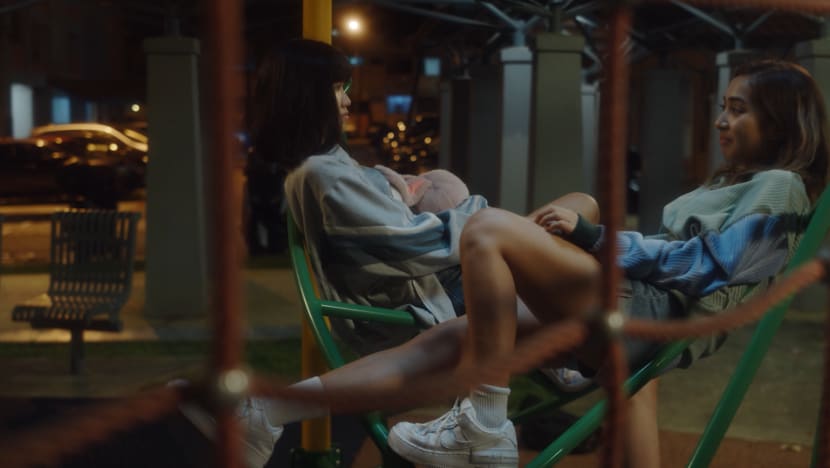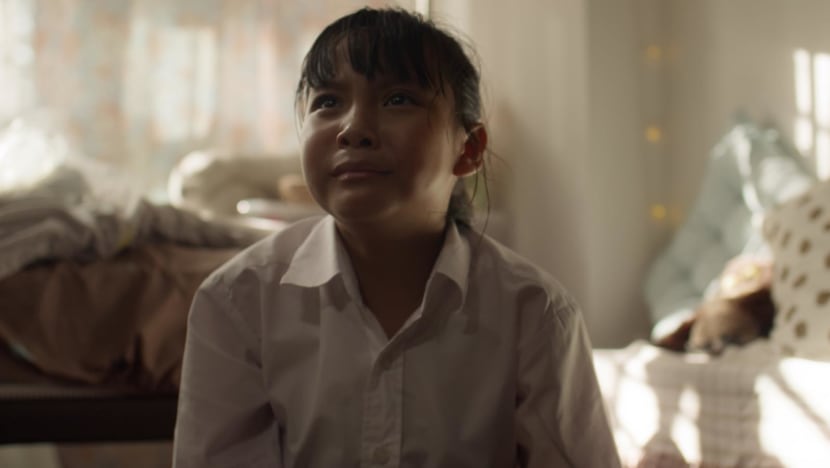Safeguarding youth against drug abuse through meaningful dialogue
By engaging in open conversations about the challenges faced by today’s youth, parents and educators can provide vital support in guiding young people toward a drug-free lifestyle.

Finding Juliana is a TikTok series that delves into the challenges youths encounter with drug use and its profound impact on their lives. Photos: National Council Against Drug Abuse
Crypto investor Xavier was on track to becoming a self-made millionaire by the age of 30. However, the business school dropout was funding his investments through the sale of drugs.
Behind this facade of success, Xavier’s life was unravelling. His relationship with his pregnant girlfriend was rocky and his illicit wares vanished when a friend’s sister, Juliana, disappeared. Faced with mounting stress and the need for an escape, Xavier found himself increasingly dependent on drugs.
While Xavier and his friends are characters from the short film Finding Juliana, they are inspired by real-life stories featured in On the Mend, a docu-series examining the impact of drug abuse on young lives. It covers the challenging journey of overcoming addiction and sheds light on how drug use reverberates through families and friendships, placing a heavy emotional burden on those close to the individuals struggling with addiction.
Both content pieces can be found on the What’s Your Fix? website, an initiative by the National Council Against Drug Abuse (NCADA) aimed at promoting a drug-free stance among youth through social engagement.
NAVIGATING A TURBULENT WORLD
Young people face a unique set of vulnerabilities, shared Dr Jimmy Lee, a council member of NCADA. Adolescence and young adulthood encompass phases defined by relationship building, self-discovery and the exploration of various interests.
“Youngsters are subjected to significant pressures from peers, school, work and family. Coupled with ongoing brain development, youth often experience heightened emotions and urges that can cloud their judgement,” said Dr Lee, who is also a senior consultant at the Institute of Mental Health (IMH) and an associate professor at the Lee Kong Chian School of Medicine, Nanyang Technological University (NTU).
In the face of such influences, acting on impulse can lead down a dangerous path – the Health and Lifestyle Survey conducted by IMH last year found that one in five drug abusers cited curiosity as the reason they began consuming drugs.
Dr Lee added that the glamourisation of drugs perpetuated by global pop culture may influence those who are impressionable.
“Opinions driven by economic or political motives – like the portrayal of cannabis as having medicinal properties – have downplayed the negative effects of drugs in young minds,” he said. “This can result in youths developing a more permissive attitude towards drugs.”
The polarisation of views on social media is another factor. “Social media is a huge source of information for young people, which increases their exposure to content from groups that advocate for the legalisation and decriminalisation of drugs,” said Dr Lee.

To reach out to social media-savvy youth, the NCADA has shared snippets from Finding Juliana on TikTok, Instagram and Facebook. The council also hosted a live TikTok event last October, featuring musical performances and an interview with post-risk youth hosted by the actors from Finding Juliana.
DISPELLING MISCONCEPTIONS WITH RESOURCES
A troubling misconception gaining traction on social media is the notion that drug abusers can evade the consequences of their habits, said Dr Lee, who attributes this false sense of security to a “survivorship bias”.
“This fallacy leads youths to ignore the numerous instances of individuals grappling with the adverse repercussions of drug abuse,” he said. “Instead, they focus on a select few people as proof that the negative effects are exaggerated and will not befall them if they were to abuse drugs.”
Additionally, young people may harbour the false belief that they can manage their drug consumption in a moderated and safe manner. However, the truth is that illicit drugs are inherently addictive and can cause harm to the user’s brain and cognitive development, as well as impact their decision-making abilities, underscored Dr Lee.
For a more holistic understanding of the impact of drug abuse, he points teenagers, parents and educators to the What’s Your Fix? repository, which aims to kickstart conversations on drug abuse by tackling inquiries related to helping individuals break free from drugs, and the broader costs of drug abuse.
And if one wishes to acquire in-depth knowledge regarding the detrimental effects of drugs, Dr Lee recommends exploring resources such as the Central Narcotics Bureau’s (CNB) Preventive Drug Education toolkit, as well as the websites of the Singapore Anti-Narcotics Association and the National Addictions Management Service by IMH.
SHORING UP VULNERABILITIES THROUGH CONVERSATIONS

Recognising the myriad challenges of modern parenting, Dr Lee has some advice for parents looking to safeguard their children from drug abuse.
“It’s best to refrain from adopting an aggressive or paternalistic approach, where we simply instruct or warn our children to steer clear of drugs,” he said. “Rather, the emphasis should be on nurturing their critical thinking and discernment abilities.”
Dr Lee’s own approach to parenting involves empowering his children to take the lead. He shared: “When they come home with material from a CNB talk or exhibition, I encourage them to share what they learnt and to ‘educate’ me on the harms of drug abuse.”
And if a scene of drug abuse plays out on screen, Dr Lee doesn’t turn off the telly. Instead, he views it as a teachable moment that can highlight the perils of drug abuse and help children take ownership of their decision to stay away from drugs.
“Moreover, parents can use these discussions as opportunities to engage their children on related topics around stress and peer influence,” said Dr Lee. “Both are often cited as reasons by drug abusers for starting the habit.”
Jasper, the interviewee from the first episode of On the Mend, recounts how his position as a permissive bystander left him plagued by guilt after a friend’s suicide attempt due to recurrent drug abuse. He now believes that with the support of family and friends, change is possible – and it starts with a mutual willingness to talk.
Dr Lee agrees that initiating meaningful conversations about drugs can help build a shared understanding of their harms. “Furthermore, youths would be able to foster a sense of belonging within their families, social circles and the community based on a common stance against drug abuse,” he added.
Learn more about the National Council Against Drug Abuse’s What’s Your Fix? campaign.















